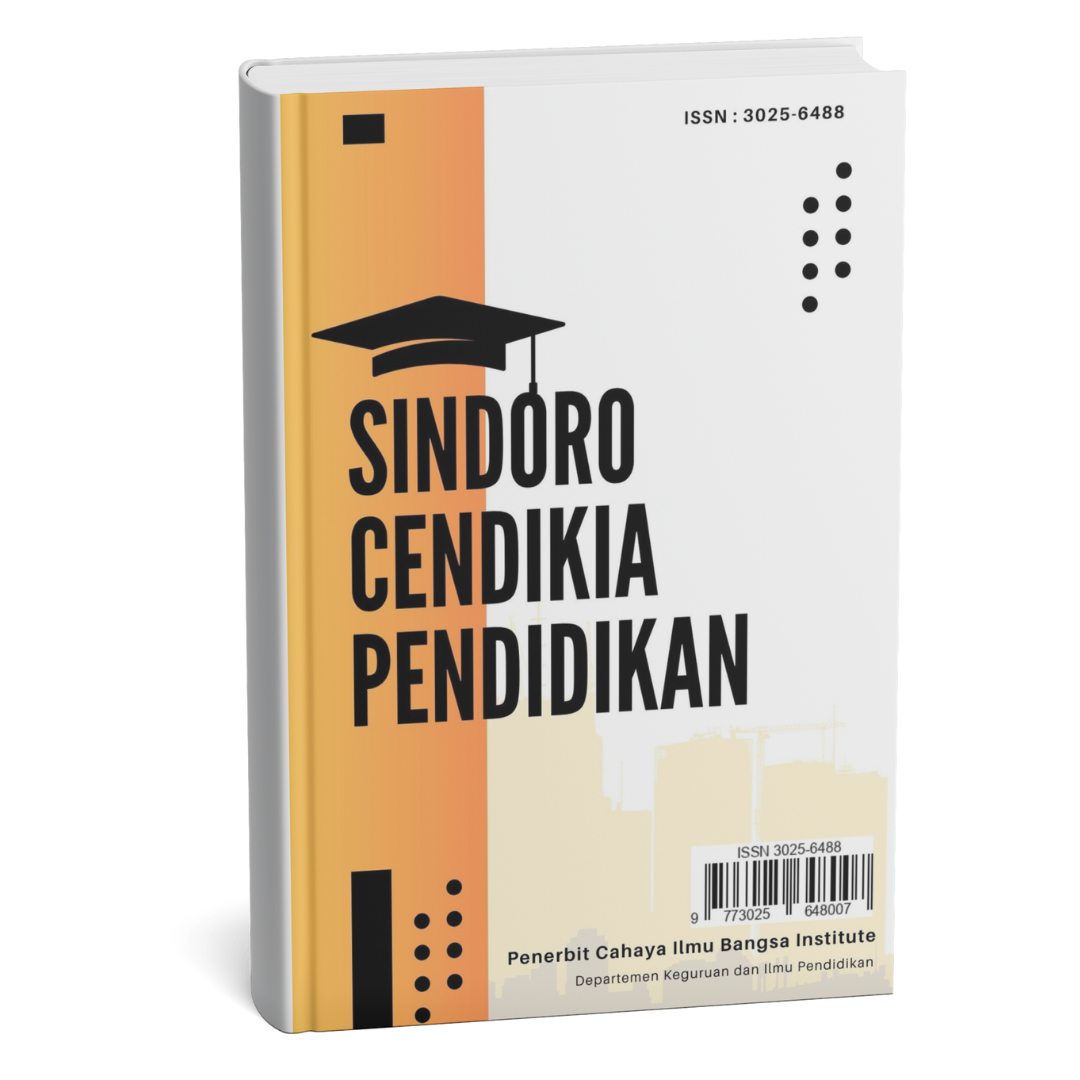PENGARUH MICROTEACHING TERHADAP PENINGKATAN KETERAMPILAN MENGAJAR DAN KEPERCAYAAN DIRI GURU
- Authors
-
-
Maulani Magfiroh
Universitas Muhammadiyah Kendal BatangAuthor -
Wulan Riska Qholifah
Universitas Muhammadiyah Kendal BatangAuthor -
Syaiful Hadi
Universitas Muhammadiyah Kendal BatangAuthor
-
- Keywords:
- Microteaching, kepercayaan diri, keterampilan mengajar, refleksi, pelatihan guru
- Abstract
-
Microteaching telah menjadi bagian penting dalam pelatihan calon guru untuk mengasah keterampilan mengajar dan membangun kepercayaan diri. Namun, dalam praktiknya, microteaching tidak luput dari berbagai tantangan. Artikel ini membahas sepuluh tantangan utama yang umum terjadi dalam sesi microteaching, disertai solusi-solusi humanis yang dapat memperkaya pengalaman peserta. Kajian ini diperkuat dengan referensi teoritis dan hasil penelitian dari berbagai pakar pendidikan. Harapannya, artikel ini dapat memberikan kontribusi nyata dalam pengembangan model pelatihan guru yang lebih reflektif, empatik, dan berdampak.
- Downloads
-
Download data is not yet available.
- References
-
Amobi, F. A. (2005). Preservice teachers' reflectivity on the sequence and consequences of teaching actions in a microteaching experience.
Bandura, A. (1997). Self-efficacy: The exercise of control.
Kpanja, E. (2001). A study of the effects of microteaching on teacher trainees' acquisition of teaching skills in Kwara State, Nigeria.
Hattie, J., & Timperley, H. (2007). The power of feedback.
Zeichner, K. M., & Tabachnick, B. R. (1981). Are the effects of university teacher education "washed out" by school experience?.
Pajares, F. (1996). Self-efficacy beliefs in academic settings.
Kolb, D. A. (1984). Experiential learning: Experience as the source of learning and development.
Kozma, R. B. (2003). Technology and classroom practices: An international study.
Entwistle, N. J. (1991). _Approaches to learning and perceptions of the learning environment.
Schön, D. A. (1983). The reflective practitioner: How professionals think in action.
- Downloads
- Published
- 2025-07-13
- Section
- Articles
- License
-
This work is licensed under a Creative Commons Attribution-ShareAlike 4.0 International License.
How to Cite
Most read articles by the same author(s)
- Winda Maulida Rahmah, Istisusi Romdiana, Syaiful Hadi, STRATEGI EFEKTIF UNTUK MENINGKATKAN PEMBELAJARAN , Sindoro: Cendikia Pendidikan: Vol. 16 No. 11 (2025): Sindoro: Cendikia Pendidikan
- Vivin Rahmawati, Faya Fitanisa, Syaiful Hadi, PENTINGNYA MICROTECHING DALAM MENINGKATKAN KUALITAS CALON PENDIDIK , Sindoro: Cendikia Pendidikan: Vol. 16 No. 11 (2025): Sindoro: Cendikia Pendidikan
- Biki Sabili Karkauni, Ratri Wulandari, Syaiful Hadi, PENERAPAN METODE PEMBELAJARAN AKTIF DALAM MICROTEACHING UNTUK MENINGKATKAN PARTISIPASI SISWA , Sindoro: Cendikia Pendidikan: Vol. 16 No. 11 (2025): Sindoro: Cendikia Pendidikan
- Zunia Restanti, Edna Janishentika, Syaiful Hadi, EFEKTIVITAS MICROTEACHING DALAM MEMPERSIAPKAN MAHASISWA MENJADI PENDIDIK PROFESIONAL , Sindoro: Cendikia Pendidikan: Vol. 16 No. 11 (2025): Sindoro: Cendikia Pendidikan
Similar Articles
- Vivin Rahmawati, Faya Fitanisa, Syaiful Hadi, PENTINGNYA MICROTECHING DALAM MENINGKATKAN KUALITAS CALON PENDIDIK , Sindoro: Cendikia Pendidikan: Vol. 16 No. 11 (2025): Sindoro: Cendikia Pendidikan
- M. Arief Hidayatullah, Norhasanah, Nadia Wahdaini, Yulia Rahmah, Hafizatunnisa, IMPLEMENTASI MICROTEACHING BERBASIS FIQIH DALAM PROGRAM STUDI PENDIDIKAN AGAMA ISLAM: ANALISIS TANTANGAN DAN SOLUSI , Sindoro: Cendikia Pendidikan: Vol. 15 No. 5 (2025): Sindoro Cendikia Pendidikan
- Zunia Restanti, Edna Janishentika, Syaiful Hadi, EFEKTIVITAS MICROTEACHING DALAM MEMPERSIAPKAN MAHASISWA MENJADI PENDIDIK PROFESIONAL , Sindoro: Cendikia Pendidikan: Vol. 16 No. 11 (2025): Sindoro: Cendikia Pendidikan
- Biki Sabili Karkauni, Ratri Wulandari, Syaiful Hadi, PENERAPAN METODE PEMBELAJARAN AKTIF DALAM MICROTEACHING UNTUK MENINGKATKAN PARTISIPASI SISWA , Sindoro: Cendikia Pendidikan: Vol. 16 No. 11 (2025): Sindoro: Cendikia Pendidikan
- Rahayu Adistiyarani, Nabila Nisa Azzahra, M. Yunus Abu Bakar, PENERAPAN TEORI KONSTRUKTIFISTIK DALAM PEMBELAJARAN BAHASA ARAB , Sindoro: Cendikia Pendidikan: Vol. 14 No. 5 (2025): Sindoro Cendikia Pendidikan
- Elsa Rahmalia Putri, Fadilah Nurfalah, Holy Angelica Hot Mauli Gultom, Rufaidah Muti’ah, Vanska Lidia, Yughnita Azmi Awalliyah, Yuki Wulan Azzahwa, Nurdiansyah Nurdiansyah, DAMPAK DIGITALISASI PENDIDIKAN TERHADAP PRAKTIK MENGAJAR GURU SEKOLAH DASAR DI ERA KURIKULUM MERDEKA , Sindoro: Cendikia Pendidikan: Vol. 17 No. 10 (2025): Sindoro Cendikia Pendidikan
- Maulana Muhammad Fajri, Adong Wahyu Setiawan Purba, Heri Irawan, PELAKSANAAN PENILAIAN FORMATIF DALAM PEMBELAJARAN MATA PELAJARAN PANCASILA DI SD NEGERI 3 TEGALSARI , Sindoro: Cendikia Pendidikan: Vol. 14 No. 8 (2025): Sindoro Cendikia Pendidikan
- Indah Gustina, Dea Mustika, KESULITAN GURU DALAM PEMBUATAN MEDIA PEMBELAJARAN IPAS KELAS VA SD NEGERI 017 BUKIT KEMUNING , Sindoro: Cendikia Pendidikan: Vol. 17 No. 7 (2025): Sindoro Cendikia Pendidikan
- Rahma Nuril Fariha, MENGENAL PERKEMBANGAN ANAK SEKOLAH DASAR DAN CARA MENDUKUNGNYA , Sindoro: Cendikia Pendidikan: Vol. 17 No. 8 (2025): Sindoro Cendikia Pendidikan
- Deya Rahmatia H. Anuli, Novianty Djafri, BUDAYA INDIVIDU GURU DALAM MEMBANGUN IKLIM BELAJAR POSITIF DI SDN 10 BONGOMEME , Sindoro: Cendikia Pendidikan: Vol. 14 No. 8 (2025): Sindoro Cendikia Pendidikan
You may also start an advanced similarity search for this article.






